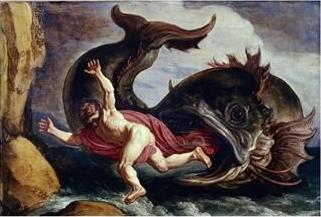For some unknown reason, my parents never let me have pets. Growing up several of my friends had dogs, cats, snakes, and other animals but I could not have one. My parents most likely did not want the mess, fur, and the waste around the back yard. I really did not mind the idea of an animal around the house, but I think my parent’s did not like the concept of an dirty animal walking around the house with us.
 In ancient times, people and animals lived close together. Throughout the Bible we see animals playing a role in God’s creation and God’s people. Animals are mentioned from Genesis to Revelation. For a complete list of animals in the Bible check this out. What we might not realize is that we can learn valuable insight from these animal stories. Scripture teaches us that:
In ancient times, people and animals lived close together. Throughout the Bible we see animals playing a role in God’s creation and God’s people. Animals are mentioned from Genesis to Revelation. For a complete list of animals in the Bible check this out. What we might not realize is that we can learn valuable insight from these animal stories. Scripture teaches us that:
God created all the animals (Psalm 104).
“Then God commanded, ‘Let the earth produce all kinds of animal life; domestic and wild, large and small, and it was done. So God made them all, and He was pleased with what He saw.” Genesis 1:24, 25
All animals belong to God (Psalm 24:1).
“All the animals in the forest are Mine and the cattle on thousands of hills. All the wild birds are Mine and all living things in the fields.” Psalm 50:10, 11
God cares for the animals (1 John 4:16).




 Is it winter? Upstate New York just received more than 2 inches of rain in the month of January! What’s up with that? It’s winter, not spring. Since I am a snow lover, I thought one of the benefits of being a pastor in upstate New York was the snow. Where is it!?! My dreams of snowmobiling, skiing, and snowshoeing are quickly becoming just that, a dream. This is not the winter season I had hoped for. The weather we have had lately has been more of a Washington D.C. winter: rainy, some snow, sometimes mild, or sometimes cold. You never know what you will get. Then, just this week, we received a foot of snow. What a crazy winter!
Is it winter? Upstate New York just received more than 2 inches of rain in the month of January! What’s up with that? It’s winter, not spring. Since I am a snow lover, I thought one of the benefits of being a pastor in upstate New York was the snow. Where is it!?! My dreams of snowmobiling, skiing, and snowshoeing are quickly becoming just that, a dream. This is not the winter season I had hoped for. The weather we have had lately has been more of a Washington D.C. winter: rainy, some snow, sometimes mild, or sometimes cold. You never know what you will get. Then, just this week, we received a foot of snow. What a crazy winter!

 2003. Facebook is a social networking internet webpage that connects people, organizations, families, and business. Some of my college friends began to use Facebook and I saw it as a way to stay in touch with people. Facebook was confusing. Why I could see everyone’s business: who they talked to, what they posted, what they said, etc… Now, Facebook is ubiquitous. My parents, who are retired, even have a Facebook page!
2003. Facebook is a social networking internet webpage that connects people, organizations, families, and business. Some of my college friends began to use Facebook and I saw it as a way to stay in touch with people. Facebook was confusing. Why I could see everyone’s business: who they talked to, what they posted, what they said, etc… Now, Facebook is ubiquitous. My parents, who are retired, even have a Facebook page!

You must be logged in to post a comment.